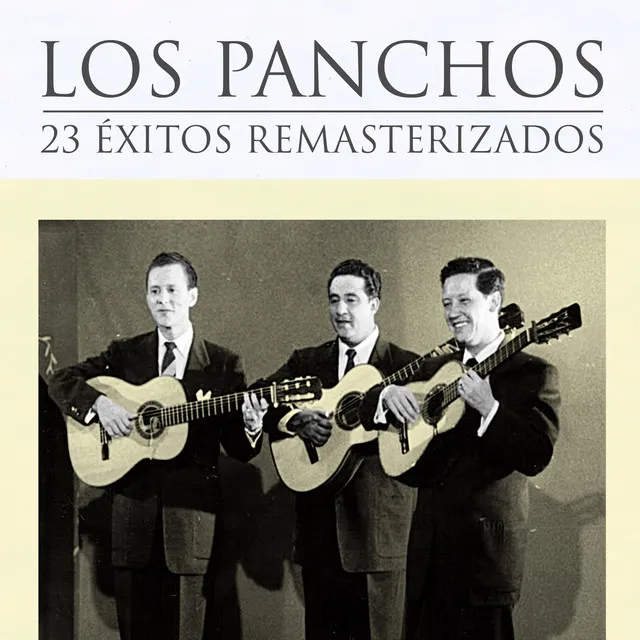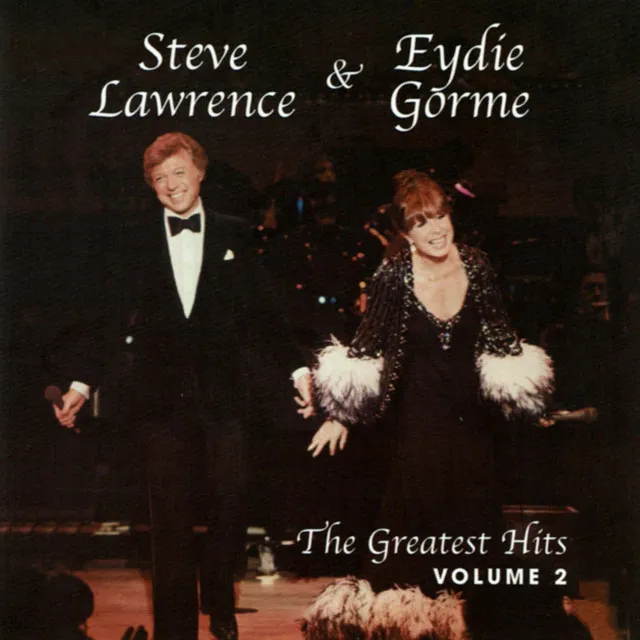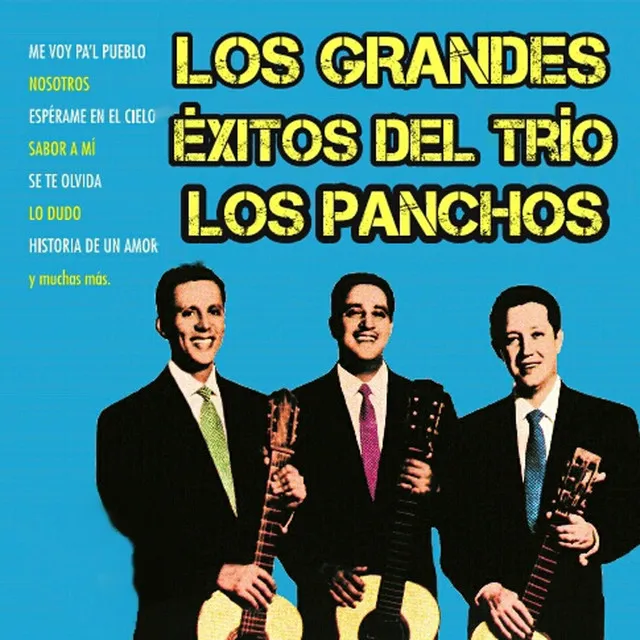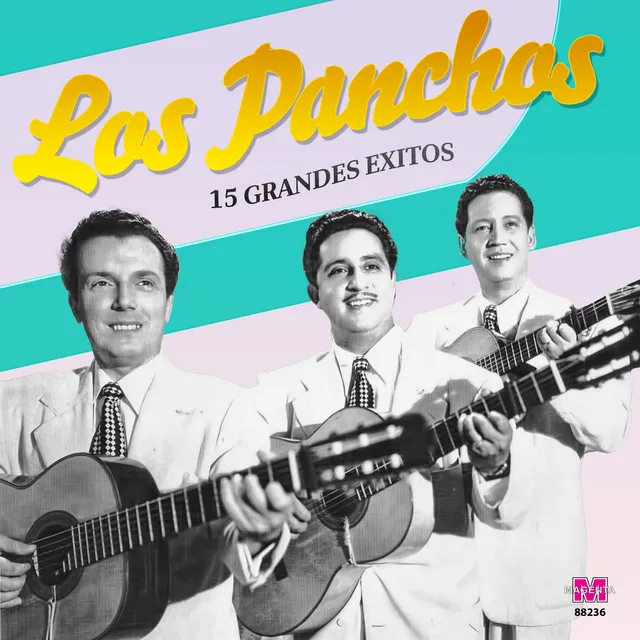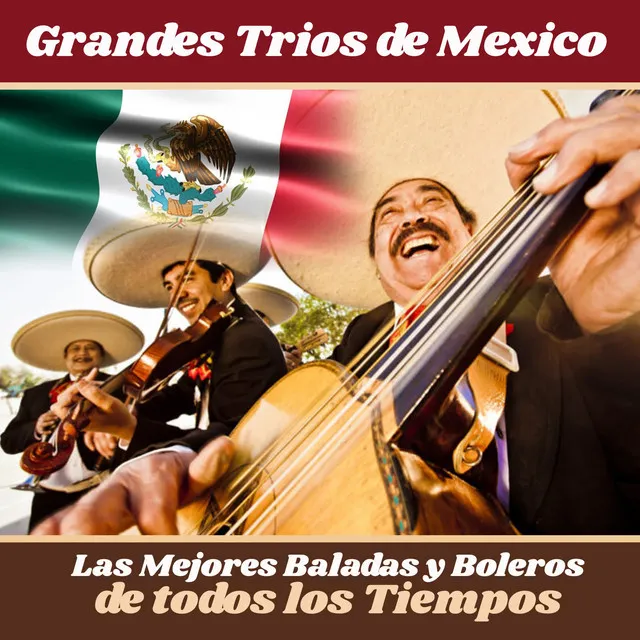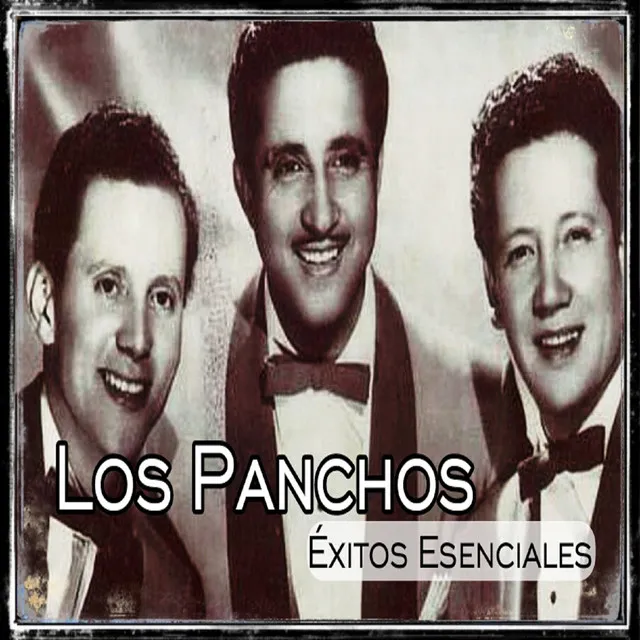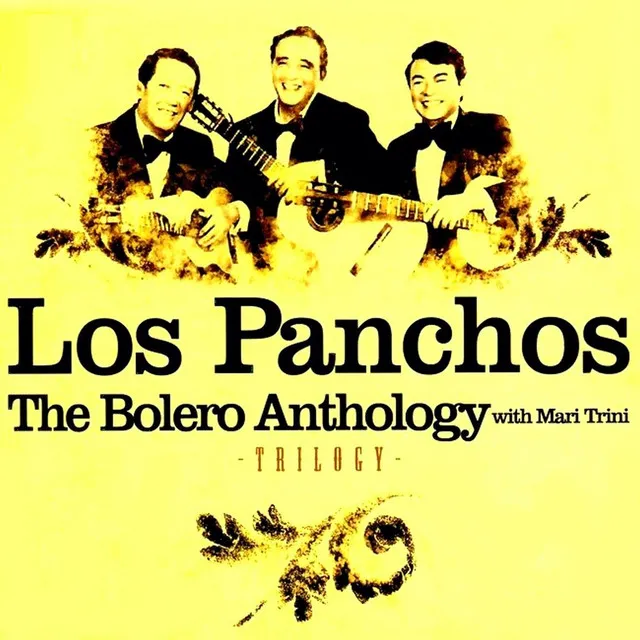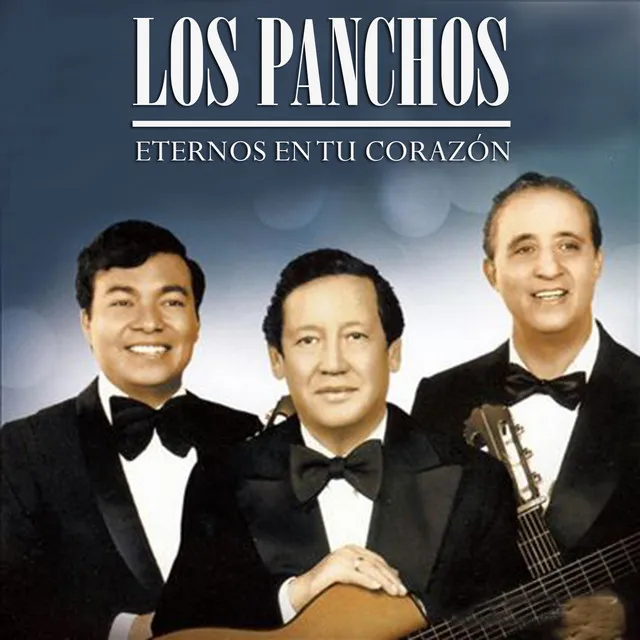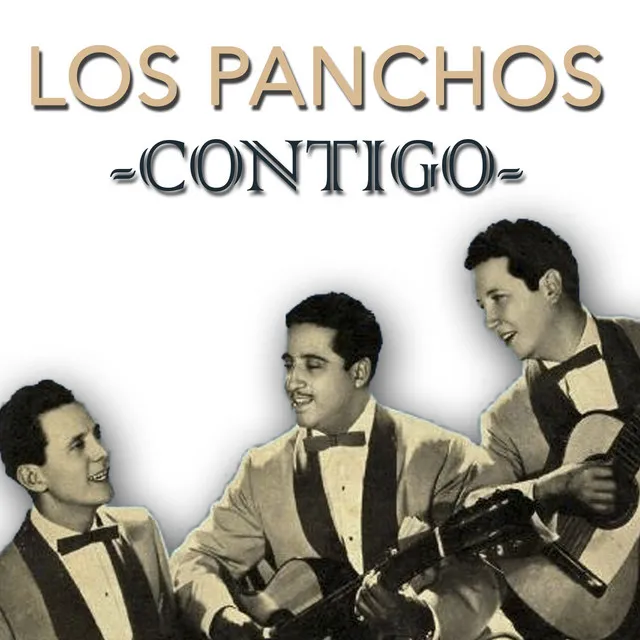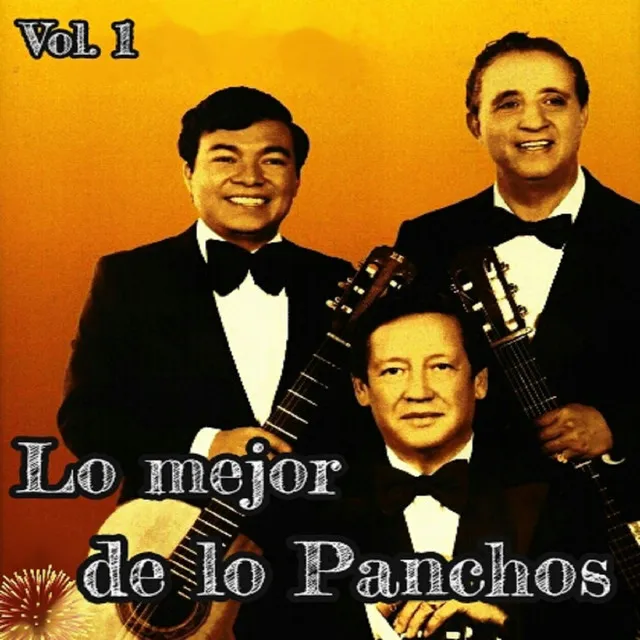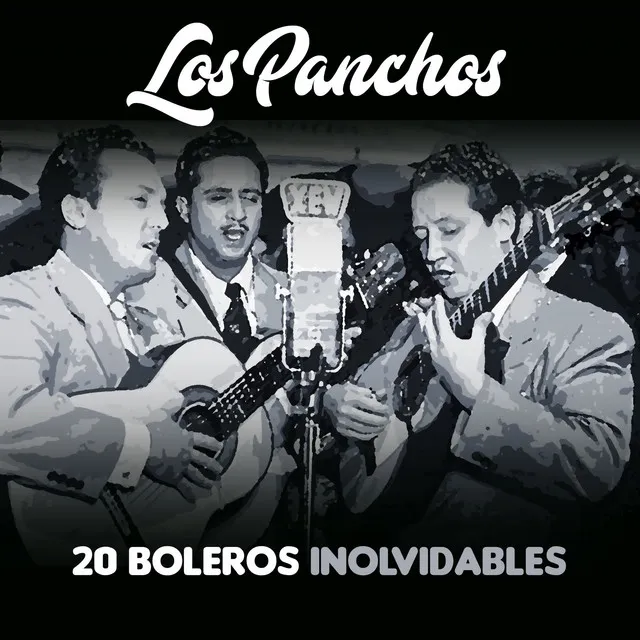Los Panchos, also known as Trios Los Panchos, are a groundbreaking balladic group comprising Mexicans Alfredo Gil and Chucho Navarro, and Puerto Rican Hernando Aviles. Their high-pitched guitars and heartbreakingly beautiful vocal harmonies established the standard for the trio's romantic form across the Spanish-speaking world. They have sold hundreds of millions of records since forming in the mid-'40s and are best known for their interpretations of classic folk songs such as "Besame Mucho," "Quizas, Quizas, Quizas," "Como un Rayito de Luna," and "Sin Ti." They have appeared in more than 50 films and sold out concerts across the globe for more than 70 years. Their influence is unmatched in Latin America, where they are rightfully regarded as one of the top musical trios of all time. Though its original members have long since died, there are several groups in the 2000s claiming to be the true successors to the group's heritage. These include one led by Rafael Basurto Lara, lead singer since 1976, and another under the musical direction of Gabriel Vargas Aguilar, son of co-founder Gil. The latter band, based in Veracruz, Mexico, continues to perform concerts across Mexico, Latin America, and the United States, with a new cast of vocalists. Still another, Trio Los Panchos de Chucho Navarro Fundador (founder Chucho Navarro's El Trio Los Panchos) under the direction of Chucho Navarro, Jr., continues to perform worldwide.
The three original members met in New York City in 1944. Aviles possessed a rich tenor and sang lead while Gil and Navarro sang harmony and played requinto guitars (smaller, higher-tuned instruments invented by Gil). After playing out in New York honing their sound, the group went to Mexico to seek their fame and fortune. In 1949, they signed with Columbia Records and issued the eight-song 10" Ritmos Tropicales. The album was welcomed by Mexican radio, opening the door to their future success. The trio toured incessantly and later that year released their second album, Boleros Selectos. As their shows drew larger and larger audiences and their radio appearances broke records, the group recorded at a prolific pace. Aviles left the band in 1951 to go solo. He was replaced by Julito Rodríguez in 1952, but left in 1957 when Aviles briefly returned. Aviles left again in 1958 and was replaced by the famed Puerto Rican bolero singer Johnny Albino. Tris Los Panchos' cinematic career began in earnest in the '50s, and they made dozens of appearances performing classic songs.
At the dawn of the '60s, the group was so successful that they toured Asia and released En Tokyo in 1960 and Ambassadors of Song in 1961, each reflecting their travels. In 1964, singer Eydie Gorme collaborated with the group on the album Amor that resulted in her signature hit "Sabor a Mi." The resulting success of the collaboration prompted Columbia to record several follow-ups including By Special Request: Trio Los Panchos Sing Great Love Songs on English. 20 years into their career, Trio Los Panchos played venues from Carnegie Hall and the Olympia Theater in Paris to opera houses and soccer stadiums in Latin America while continuing to deliver an average of two albums per year. In 1966, Gorme reunited with Los Panchos for two holiday-themed albums including Navidad Means Christmas, and another collection of love songs. In 1967, at the height of their popularity, Trio Los Panchos met with American vocal group the Jordanaires and cut the album Hey Amigo. After issuing Trio Los Panchos con Mariachi in 1968, the group undertook a series of collaborations and tribute albums including Dos Idolos Cantando Juntos with Javier Solis, and recordings with Everardo Ordaz and Gigliola Cinquetti. Albino left the group in 1968 in a hostile split that involved lawsuits. He lost his bid, and was legally prevented from recording or performing any of the material in the Los Panchos catalog. The group issued a series of live albums to fill the gap while they were seeking a new lead singer.
In 1971, Ovidio Hernández joined as lead vocalist; he remained until his death from meningitis in 1976. He was followed by Rafael Basurto Lara, who continues to sing with his own version of the group in the 21st century. While the '70s proved no less prolific for the trio in terms of recordings (both live and studio), the '80s proved a different story. Alfredo Gil retired in 1981 and Chucho Navarro took the reins. Navarro brought in guitarist Gabi Vargas (Gil's son); though the founding member remained with the trio until his own death in 1993. Gil passed in 1999, happy that son Vargas had kept the band alive with help from Chucho Navarro, Jr. and Lara. This version split in the 21st century and was replaced by the separate groups led by Lara and Vargas. Much of the original trio's catalog has been continuously available and the splinter groups continue to tour successfully. ~ Thom Jurek, Rovi
